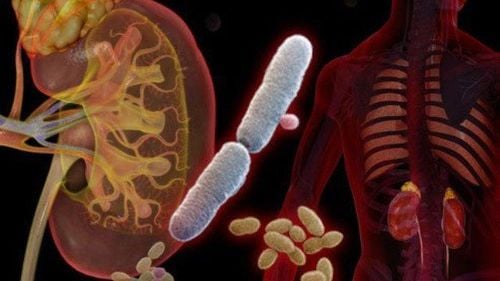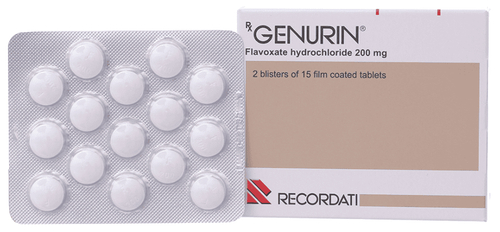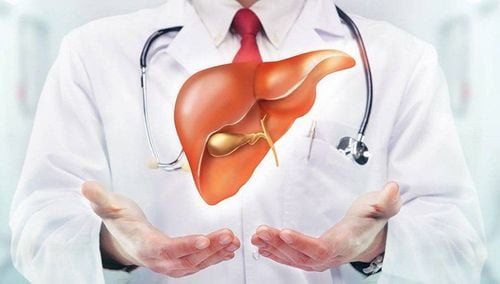This is an automatically translated article.
Article written by Doctor of Laboratory - Vinmec Danang International General Hospital
Urinary tract infections if not diagnosed and treated early can lead to some very dangerous complications such as nephritis, acute pyelonephritis such as kidney failure, perirenal abscess. Especially urinary tract infections can also lead to sepsis, which is an extremely life-threatening disease,... Therefore, early diagnosis and treatment is extremely important.
1. Definition
1.1. Urinary tract infection (UTI) This is a fairly common disease in Vietnam and around the world. It can affect both the upper (kidneys) and lower (ureters, bladder and urethra) parts of the urinary system.Urinary tract infections occur when bacteria enter any part of the urinary system from the kidneys and ureters to the bladder and urethra. Bacteria grow and infect the urine, leading to an infection in one of the organs of the urinary system. Includes:
Upper urinary tract infections such as nephritis, pyelonephritis, renal abscess,... Lower urinary tract infections such as cystitis, urethritis, prostatitis and orchitis in men 1.2. Subjects The disease affects all subjects, but is most common in women and girls. Because the female urethra is shorter and closer to the anus, it is easier for bacteria from the intestines to pass out and reside in the anus to enter the urethra.
Especially, up to 50% of newly married women get a urinary tract infection through sexual intercourse for the first time. During intercourse, bacteria available in the vulva will be facilitated to enter the urethra.

Nhiễm khuẩn tiết niệu thường gặp ở phụ nữa và trẻ em gái
For menopausal women because of a lack of estrogen, the mucous membranes are often dry and Doderlein bacteria, which are beneficial bacteria against pathogenic bacteria in the vulva area, will be scarce. The bacteria that cause urinary tract infections will grow quickly.
For the elderly, due to reduced resistance such as in diabetes and people with dementia, urinary incontinence is susceptible to retrograde UTI.
Some cases of urine flow are obstructed, seen in some prostate tumors, spinal trauma, prolonged lying due to paralysis or immobilization due to bone immobilization (due to femoral neck fractures common in women) Elderly). This is also a favorable condition leading to urinary tract infections causing urinary tract infections.
Endogenous causes such as urinary tract stones, as well as some exogenous causes such as urethral dilatation, stone removal or surgery for prostatic hyperplasia, prostatitis also cause urinary tract infections. .
Especially, prolonged urinary catheterization also increases the risk of retrograde UTI.
1.3. Symptoms of urinary tract infection Local manifestations: frequent urination, difficulty urinating and possibly painful urination such as burning, burning when urinating. In addition, the patient may feel pain in the hip and back due to urinary tract infection in the kidney or in the lower abdomen due to cystitis. If the urinary tract infection is caused by an obstruction such as a urinary tract stone, it is often accompanied by back pain or renal colic, which may lead to urination, painful urination...
Systemic manifestations are often fever and chills Urine often cloudy, pus-filled or with an unpleasant odor. may be pink (gross hematuria).

Tiểu khó kèm theo sốt và rét run có thể là triệu chứng của nhiễm khuẩn đường tiết niệu
2. Urine culture, an essential test in the treatment of urinary tract infections
2.1. General Principle Urine culture is a method of culturing a patient's urine sample to detect the presence of pathogenic bacteria.Must ensure absolute sterility when collecting urine specimens. If the urine specimen is not taken correctly, it will greatly affect the test results.
Cultured urine should be transported quickly to the laboratory for technical analysis. Here, a culture technique will be conducted, identifying bacteria present in the urine sample, and if pathogenic bacteria are isolated when there are more than 105 pathogenic bacteria / 1 ml, then there is definitely a urinary infection. If urine is taken directly from the bladder (with a needle, not a catheter), as little as 102 to 103 bacteria/ml can cause a UTI.
Conduct antibiogram to determine the susceptibility and antibiotic resistance of pathogenic bacteria
2.2. What is the significance of urine culture results in urinary tract infections? Identifying pathogenic bacteria and making antibiotics through a urine culture test will help doctors understand the patient's condition, confirm the diagnosis. Identify the cause and find specific antibiotics for pathogenic bacteria, which helps to treat accurately and effectively.
The most appropriate antibiotic selection method is to use antibiotics according to the antibiogram. After urine culture, the causative bacteria are identified and the bacteria's susceptibility to some antibiotics is evaluated, from which to choose the most sensitive, easily absorbed, least side effects and available antibiotics. have and consider economic issues as well.

Xét nghiệm cấy nước tiểu giúp bác sĩ nắm rõ được tình trạng bệnh nhân để có pháp đồ điều trị thích hợp
Depending on low or high infection site (cystitis or pyelonephritis), severity or mildness, acute or chronic nature and pathogenic bacteria, there are different treatment measures .
Combine symptomatic treatment with other supportive treatment, for example, in cases of lower urinary tract infections, oral antibiotics are often used in combination with topical antiseptics.
Results are considered negative when followed up after 48 hours of urine culture and no pathogenic bacteria are found. This can be understood that the patient does not have a urinary tract infection or the infectious agent is a bacteria that is especially difficult to culture by conventional methods such as: M. Tuberculosis, C. trachomatis, Mycoplasma...
Hospital Vinmec International General Hospital is one of the hospitals that not only ensures professional quality with a team of leading medical professionals, a system of modern equipment and technology. The hospital provides comprehensive and professional medical examination, consultation and treatment services, with a civilized, polite, safe and sterile medical examination and treatment space. Customers when choosing to perform tests here can be completely assured of the accuracy of test results.
Please dial HOTLINE for more information or register for an appointment HERE. Download MyVinmec app to make appointments faster and to manage your bookings easily.













